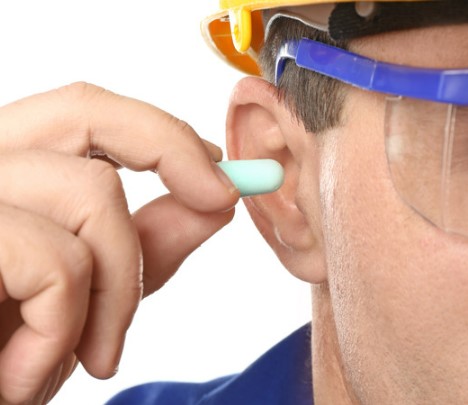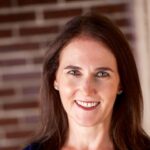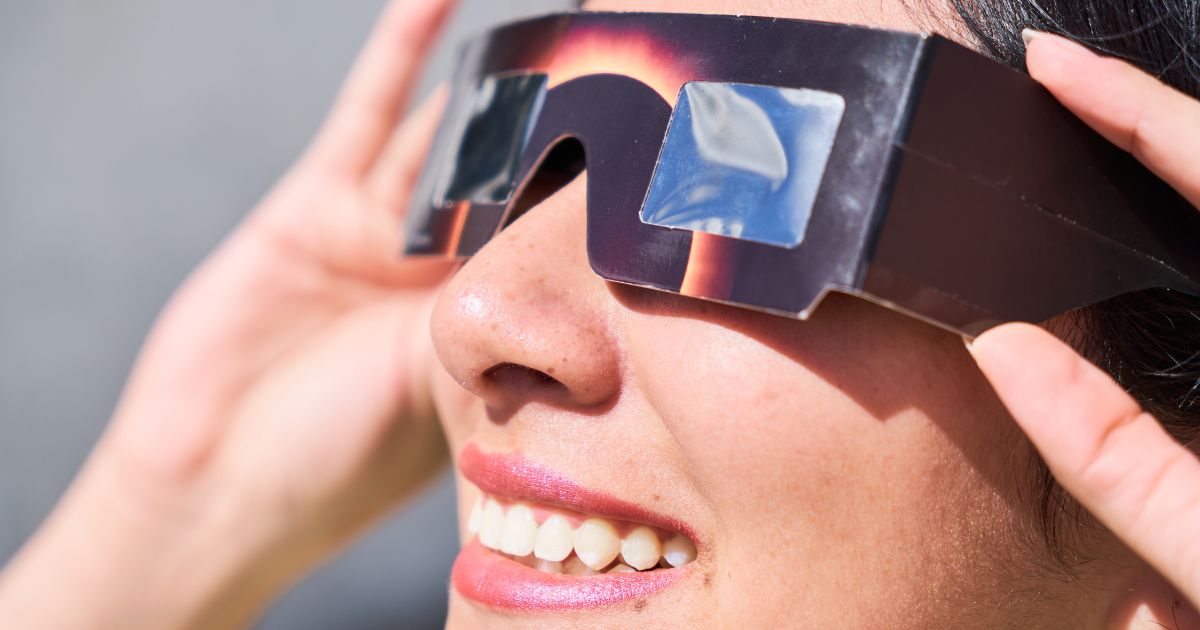Looking at the eclipse without protective glasses is like going to a concert with no noise protection. But the two events don’t seem to garner the same level of awareness or concern. What can we learn from the eclipse glasses messaging to raise awareness about protection from noise-induced hearing loss?
Eclipse Mania Hits the United States
New York City, where I live, was not in the path of totality, but it was close. During the eclipse, about 90% of the sun was covered. Standing on the street corner gazing up at the sky from behind my protective glasses was incredible. Even at 90%, the sky darkened causing the city that never sleeps to stand still, if only for the few hours of this unique shared experience.
In the weeks leading up to the eclipse, wherever you looked — mainstream media, social media — the eclipse was front and center. Protecting vision was a critical part of the public messaging. And it worked! Everywhere I went, people asked me: “Do you have your special glasses yet?”
Benefits of Noise Protection
Why can’t protection be as front and center when it’s our hearing that is at risk?
 Unprotected exposure to noise can have a similar negative effect on hearing as staring at the sun without protection does for vision. According to It’s a Noisy Planet, a program of the National Institutes of Health, it takes only 14 minutes of unprotected exposure to sounds at 100 decibels to permanently damage hearing. This includes concerts, listening to music with headphones, sporting events, and even festive events like weddings and anniversary parties.
Unprotected exposure to noise can have a similar negative effect on hearing as staring at the sun without protection does for vision. According to It’s a Noisy Planet, a program of the National Institutes of Health, it takes only 14 minutes of unprotected exposure to sounds at 100 decibels to permanently damage hearing. This includes concerts, listening to music with headphones, sporting events, and even festive events like weddings and anniversary parties.
At 110 decibels — things like ambulance sirens or fireworks — it takes only two minutes to damage hearing. See It’s A Noisy Planet’s handy bookmark How Loud is Too Loud? for more information.
What Can Hearing Protection Advocates Learn from Eclipse Glasses Messaging?
Why was the eclipse glasses message so effective? There were three main reasons.
1. The message was simple.
To watch the eclipse safely you NEEDED eye protection. It wasn’t an “if you want to” or “just a suggestion” or a “may cause temporary damage” like the Apple watch warnings about noise exposure. Eye protection was a requirement. Period. Full stop.
2. The message was everywhere and repeated often.
Each news report, article, meme, blog post, and TikTok video stressed the importance of protecting your eyes. You couldn’t miss it. And it applied to everyone. It didn’t matter your age, your overall health, or where you were watching the eclipse. This was important for YOU.
3. Acquiring the protection was easy.
Inexpensive glasses were available for purchase online and in local shops. Some libraries and schools handed them out for free. Articles educating consumers about how to identify high-quality glasses were plentiful. There was no excuse for being unprotected on eclipse day. But even if you were, I saw people sharing their glasses on street corners all over town.
These three simple steps created a positive information loop that continuously reinforced the message and created social peer pressure to comply. Could the same be done for wearing earplugs at rock concerts and sporting events? I believe so, but only if the performers, venues and public service providers all take heed.

Shari Eberts is a passionate hearing health advocate and internationally recognized author and speaker on hearing loss issues. She is the founder of Living with Hearing Loss, a popular blog and online community for people with hearing loss, and an executive producer of We Hear You, an award-winning documentary about the hearing loss experience. Her book, Hear & Beyond: Live Skillfully with Hearing Loss, (co-authored with Gael Hannan) is the ultimate survival guide to living well with hearing loss. Shari has an adult-onset genetic hearing loss and hopes that by sharing her story, she will help others to live more peacefully with their own hearing issues. Connect with Shari: Blog, Facebook, LinkedIn, Twitter.






